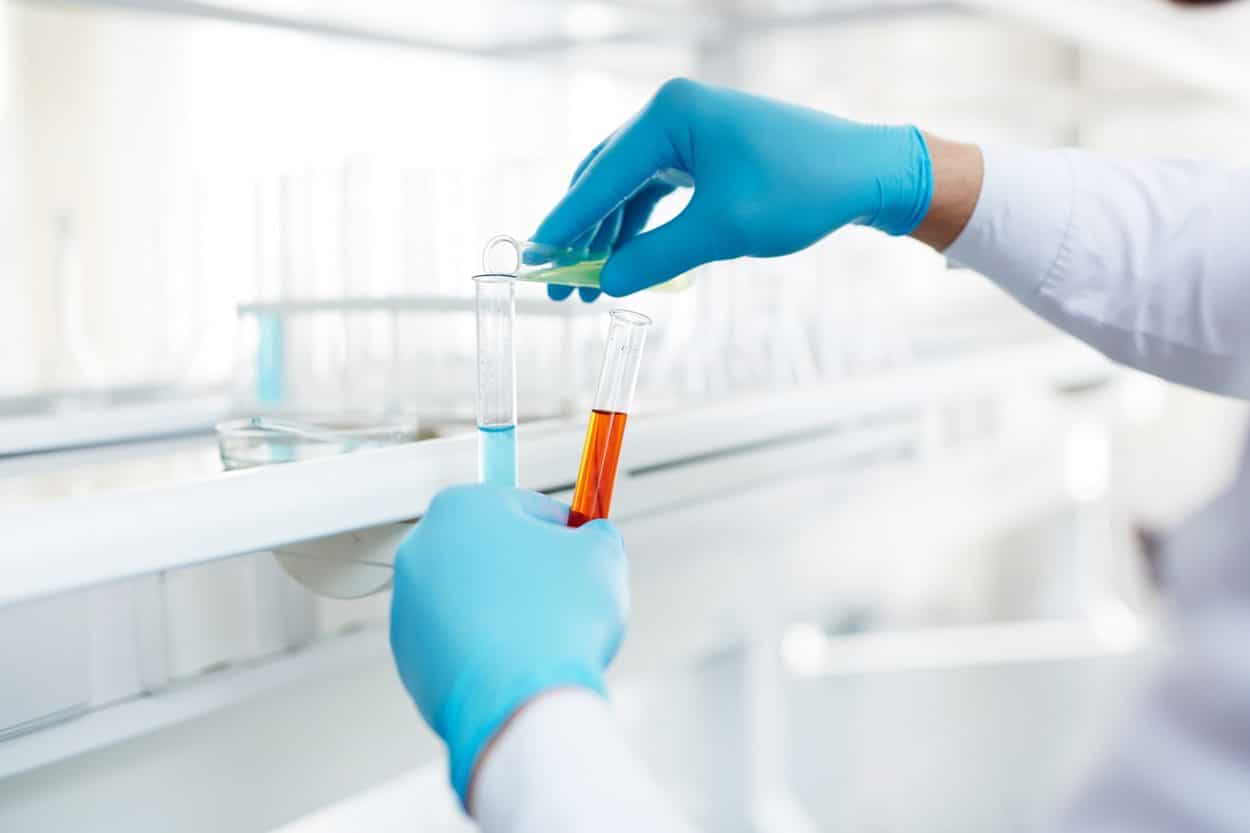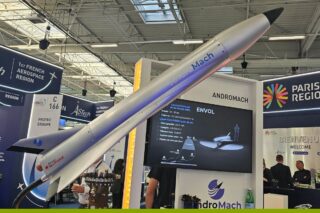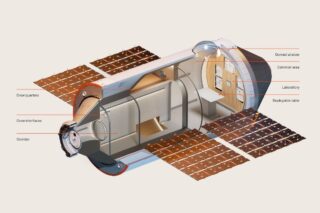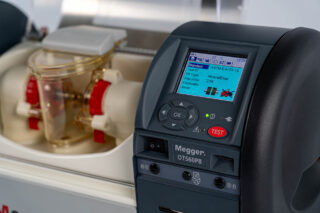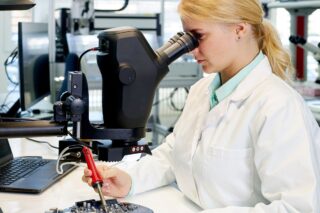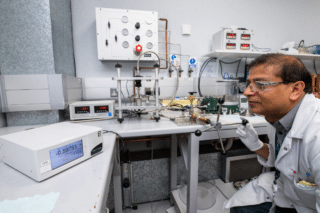From protecting the planet to battling COVID-19, biotechnology not only seems to be offering solutions but is also proving to be big business.
According to a new report by Grand View Research, Inc, by 2028, biotech processes are expected to account for a global market size of US$2.44 trillion. Expansion is expected to take place at a Compound annual growth rate (CAGR) of 15.83% due to a market driven by a demand for new solutions to combat the pandemic and protect the planet, the report suggests.
Dr Kirsty Culley, Associate Director, Science Engagement Norwich Research Park, a UK-based world-leading life sciences research and development cluster, says biotech is simply “technology based on biology.”
“It can be defined as harnessing both cellular and biomolecular processes to develop products or systems that benefit humankind. Humans have been using biotechnology for thousands of years, with the earliest examples being the use of microorganisms to make cheese, yoghurt, bread, beer and wine, as well as the breeding of animals and crops. Today biotechnology is enabling us to find and develop solutions to some of the biggest challenges facing our planet.”
Often categorized by color: white for industrial, green for agricultural, blue for marine and freshwater and red for healthcare and medical, biotechnology is pan-industrial, says Dr Culley:
“Biotechnology enables scientists and businesses to spearhead innovation and find solutions to huge global issues such as feeding an ever-growing population, antibiotic resistance, fighting pandemics and climate change. It offers versatile and powerful options for clean, or cleaner, tech, which allows minimising energy and material use and the generation of waste. Biotechnologies are being adopted increasingly by industry as it moves to become increasingly sustainable, but adoption takes time and resources.”
We selected a few examples of biotechnology applications in various industries.
Medical Applications
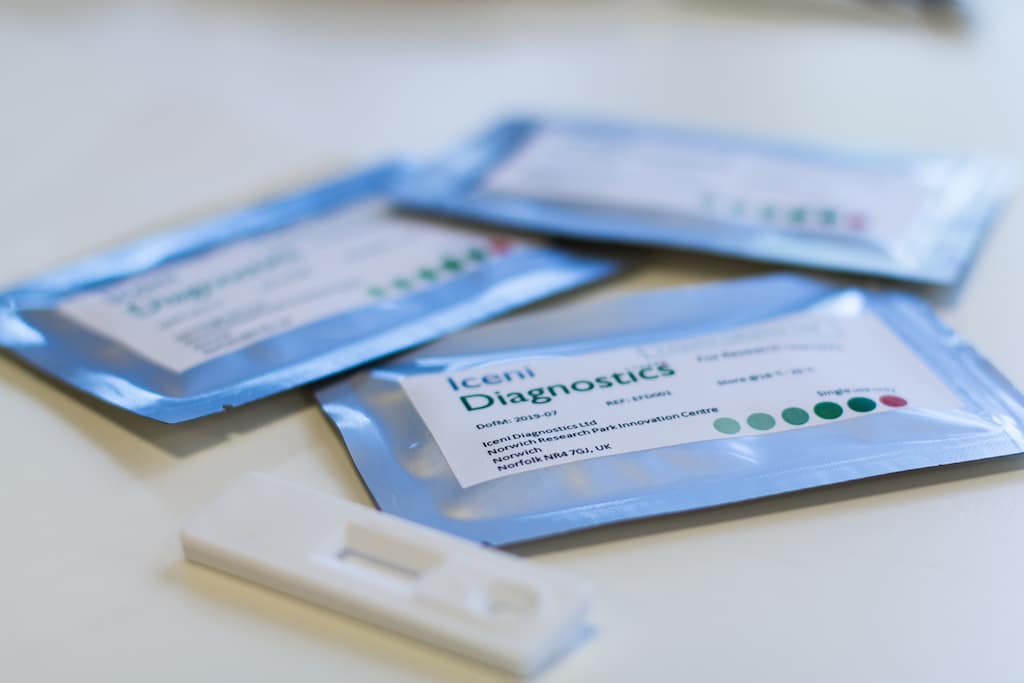
Iceni Diagnostics is focused on the development of carbohydrate-based therapeutics and point-of-care diagnostics for infectious diseases. Its carbohydrate-based platform technology can be used to identify different strains of disease such as human influenza, avian flu and equine flu. According to Alexia Mlynarska, the company used its technology to develop a diagnostic test for COVID-19.
Also, hoping to make a difference in the pandemic is Canadian Biolyse Pharma Corp. The group developed a technology for the extraction of cancer drug Paclitaxel from yew trees that ensured the availability of the drug at a fair cost, explains John Fulton, Biolyse Spokesperson and Project partner.
“Paclitaxel is extracted from the clippings with a solvent then is concentrated by precipitation and crystallization then further purified by a multi-step chromatography process.”
Now, he adds, the aim is to be producing a single-dose COVID-19 vaccine within six months.
“We decided to produce biologics here in Canada to be able to offer a reasonably priced treatment program.”
Agri-Tech
Belgium-based Biotalys is an agricultural technology company focused on addressing food protection challenges with protein-based biocontrol solutions. For Patrice Sellès, Chief Executive Officer,
“Biotalys develops protein-based biocontrols as a means of controlling pests such as fungi, bacteria and harmful insects.”
AGROBODY™ biocontrols are based on small proteins obtained by fermentation, inspired by fragments of heavy-chain antibodies found in the Camelidae family (camels, llamas and alpacas).
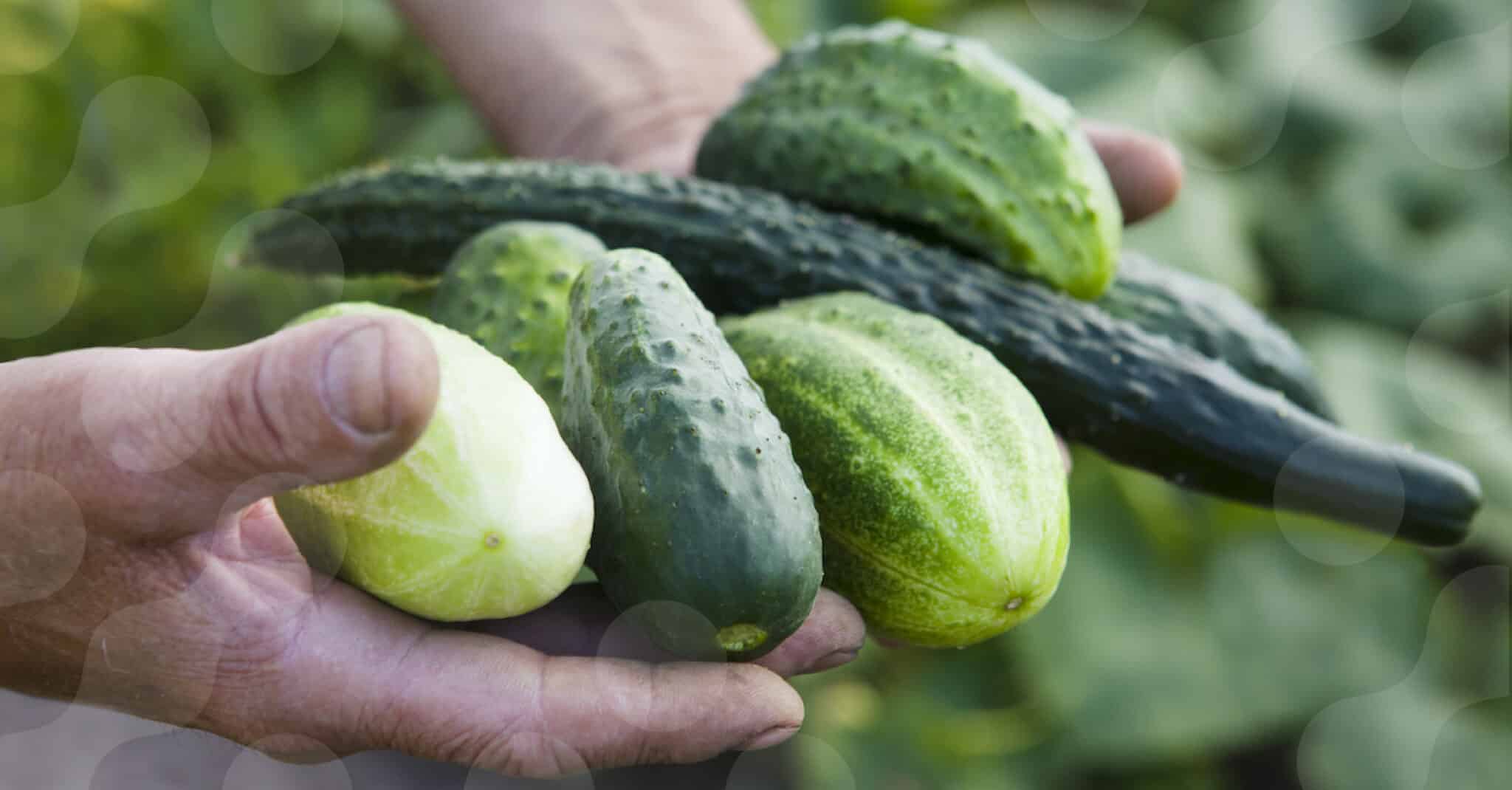

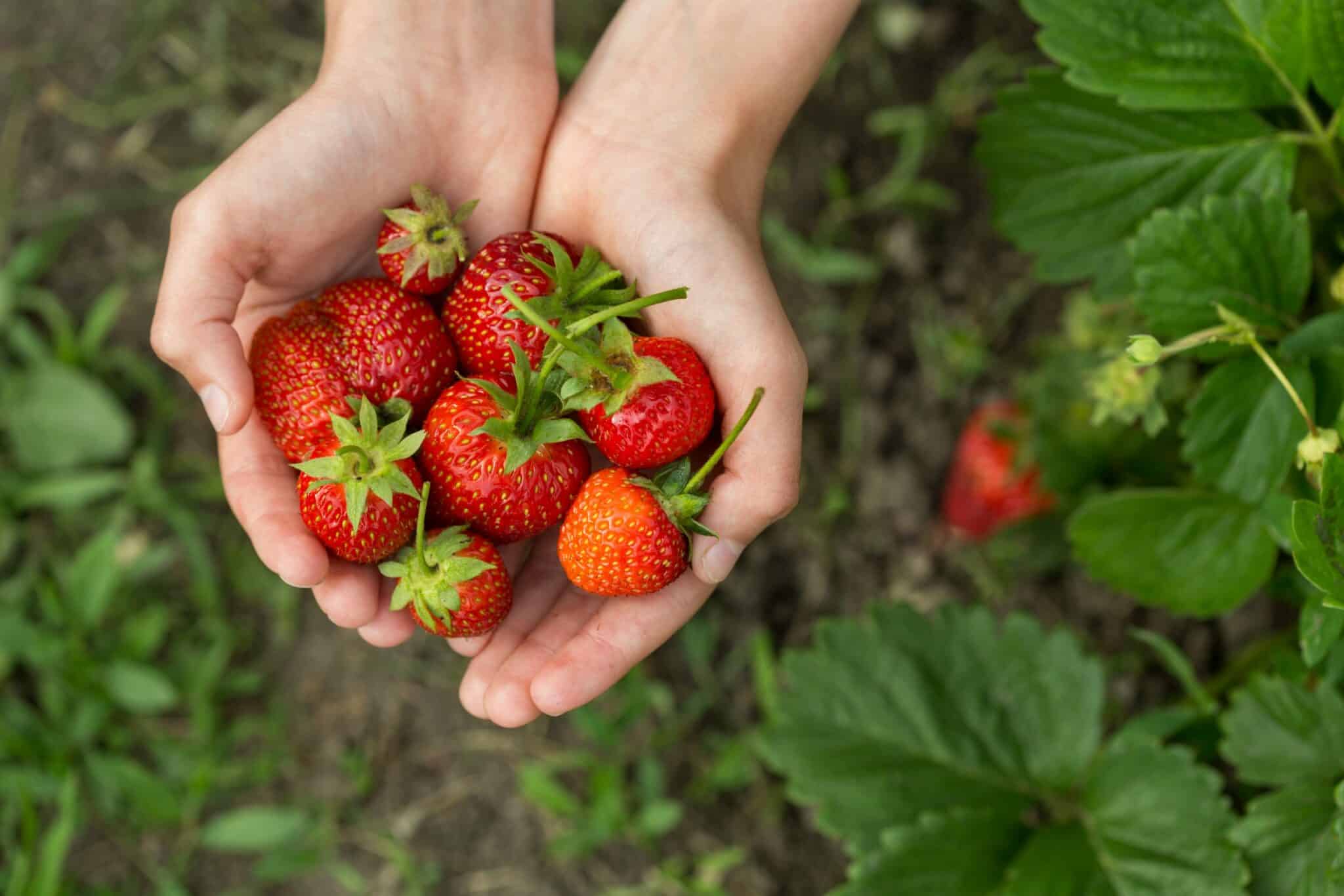
Credit: Biotalys
In addition to generating conventional antibodies, camelids produce fully functional miniature antibodies, which are a tenth of the size of a conventional antibody.
“We make proteins to match small fragments of camelid antibodies, these proteins can then attach to antigens on the organisms targeted by our products, just like an antibody does, thereby controlling the pest or disease, before biodegrading into amino-acids. Applying the technology to create our novel class of biocontrols allows us to discover biocontrols rapidly and relatively inexpensively in comparison to chemical products.
Additionally, the safety profile of these biocontrols allows for greater reach of their applications across the entire food production chain for humans, fauna and soils; from seed treatment, crop protection harvest, post-harvest and retail.”
Plastic Processes
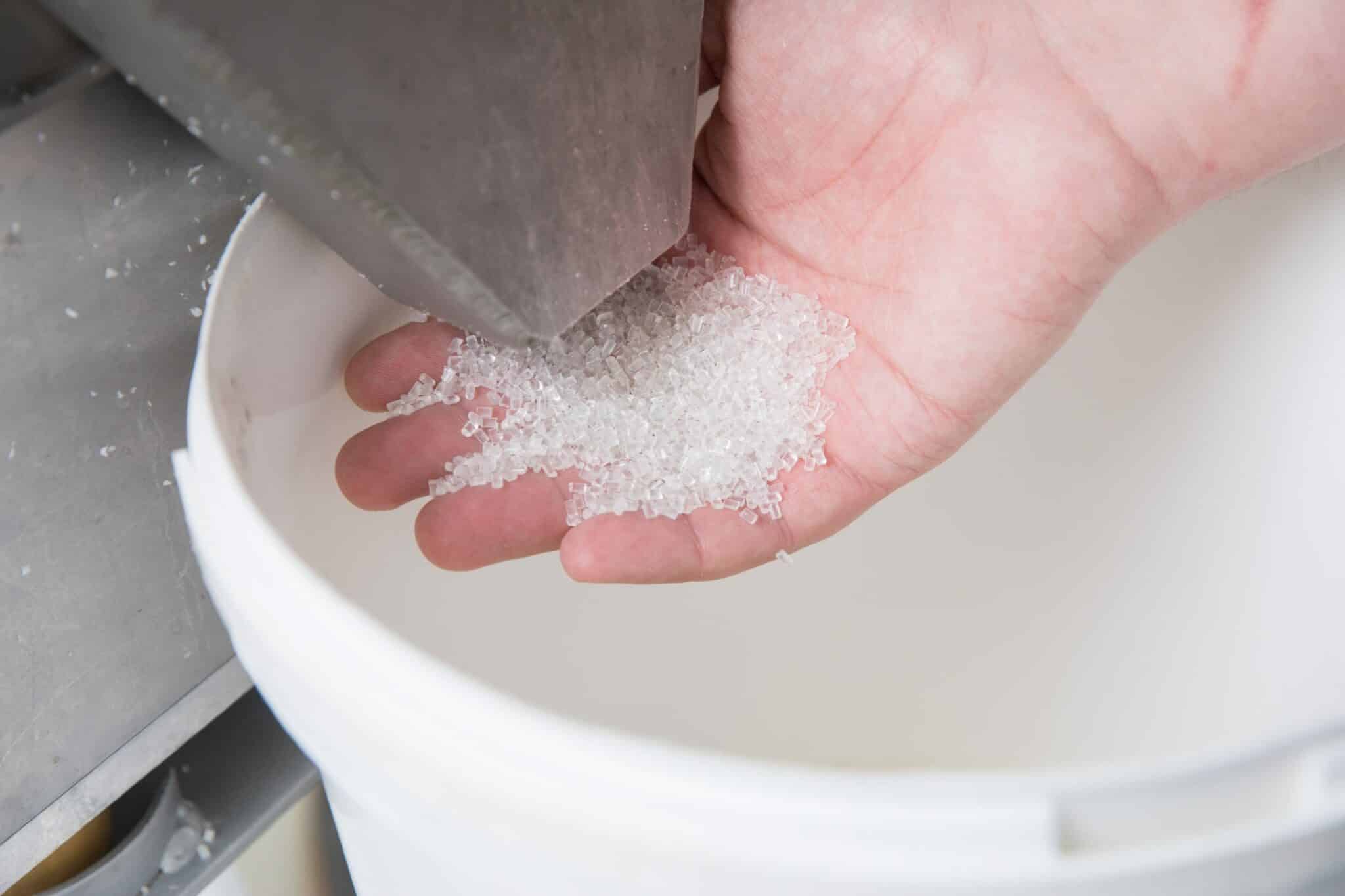
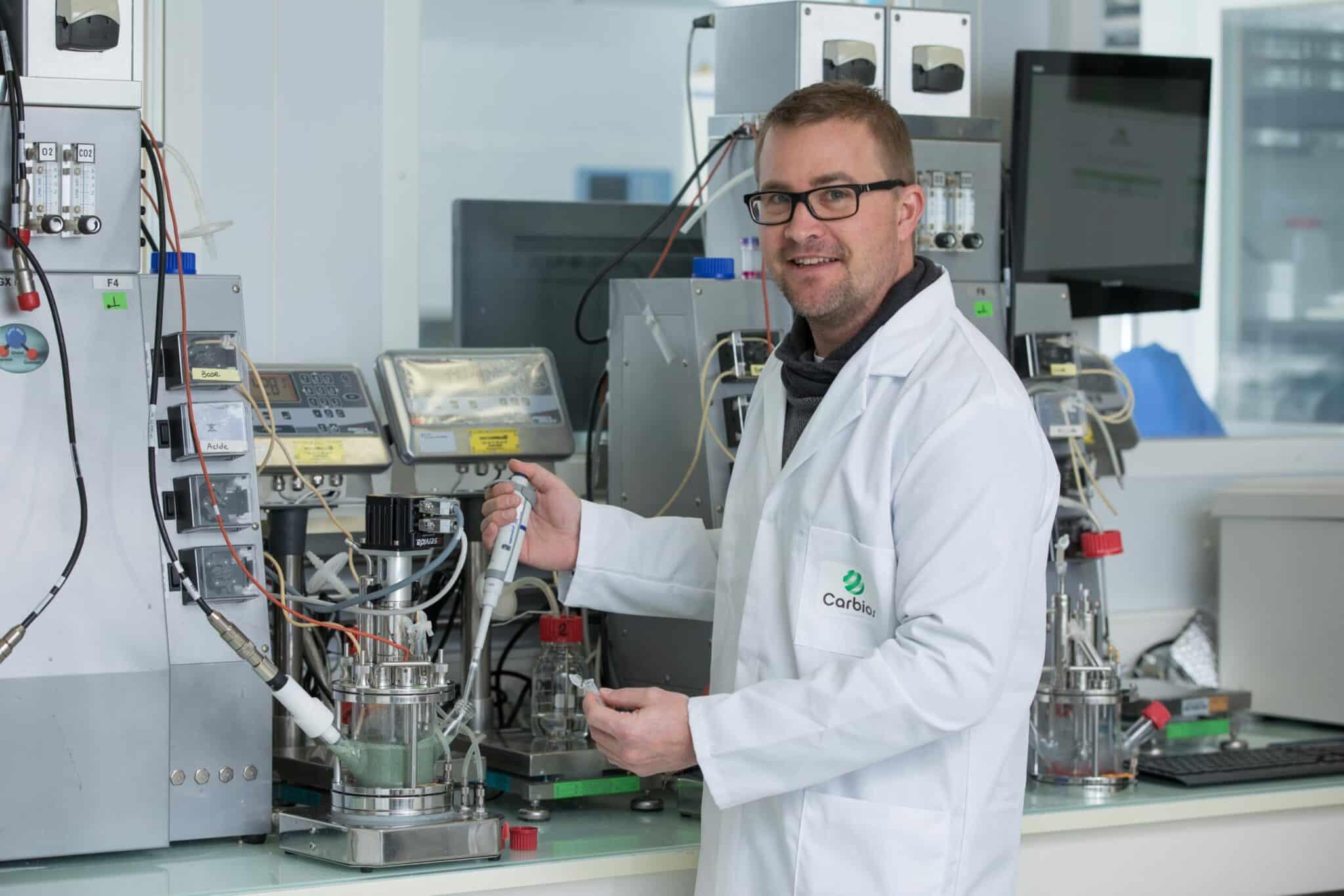
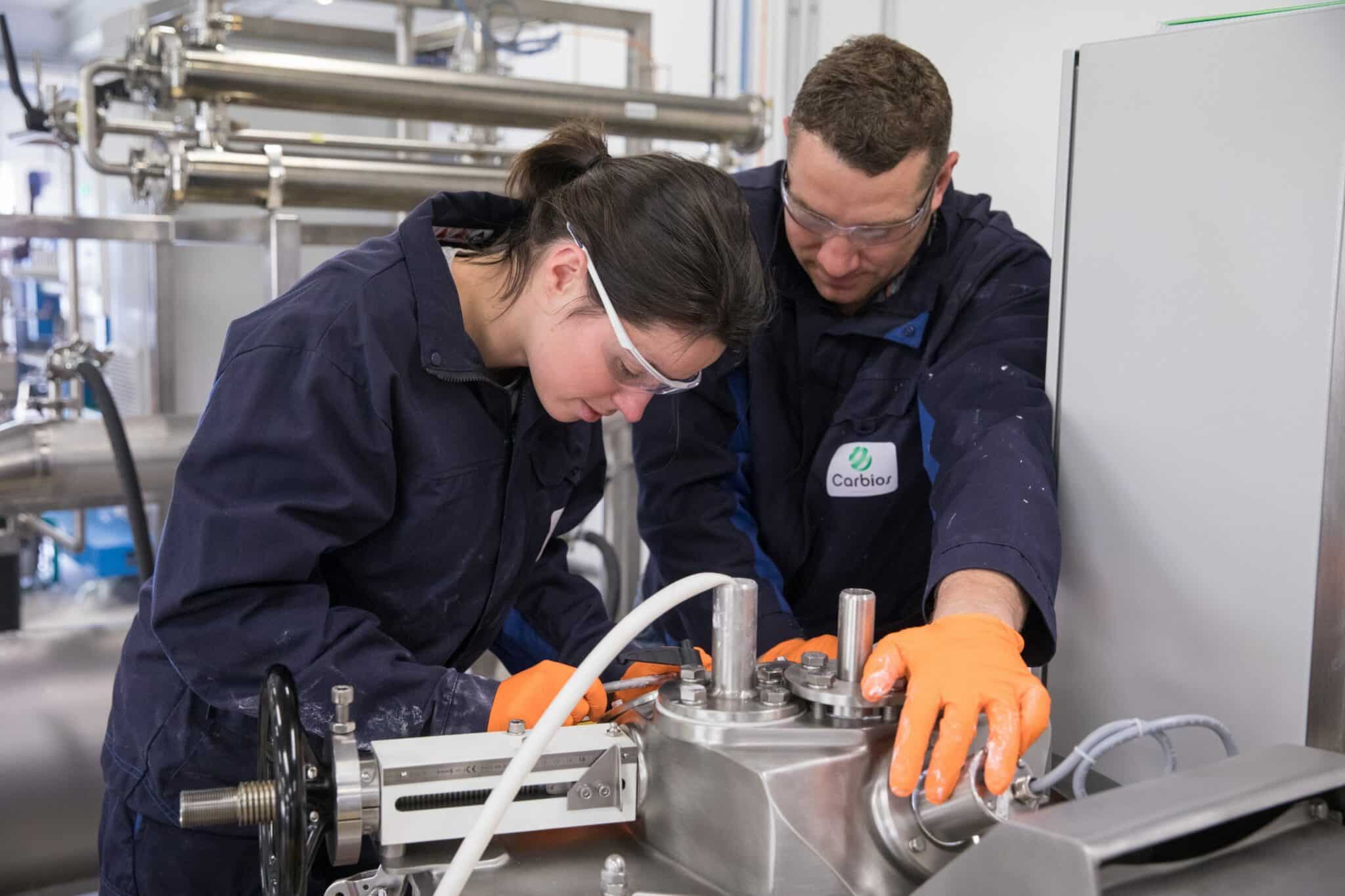
French firm Carbios employs biotech to tackle plastic waste. For Deputy CEO Martin Stephan,
“Our enzymatic recycling process uses an enzyme capable of specifically depolymerizing the PET (polyethylene terephthalate) contained in various plastics or textiles. Current thermomechanical recycling processes have limitations: only clear plastic can be recycled in closed loops, with a loss of quality in each cycle, making it difficult to obtain new products from 100% recycled PET.”
Thus, complex and soiled plastics are very difficult or impossible to recycle.
“Unlike conventional processes, our innovation allows infinite recycling of all types of PET waste as well as the production of 100% recycled and 100% recyclable PET products, without loss of quality.”
Textiles

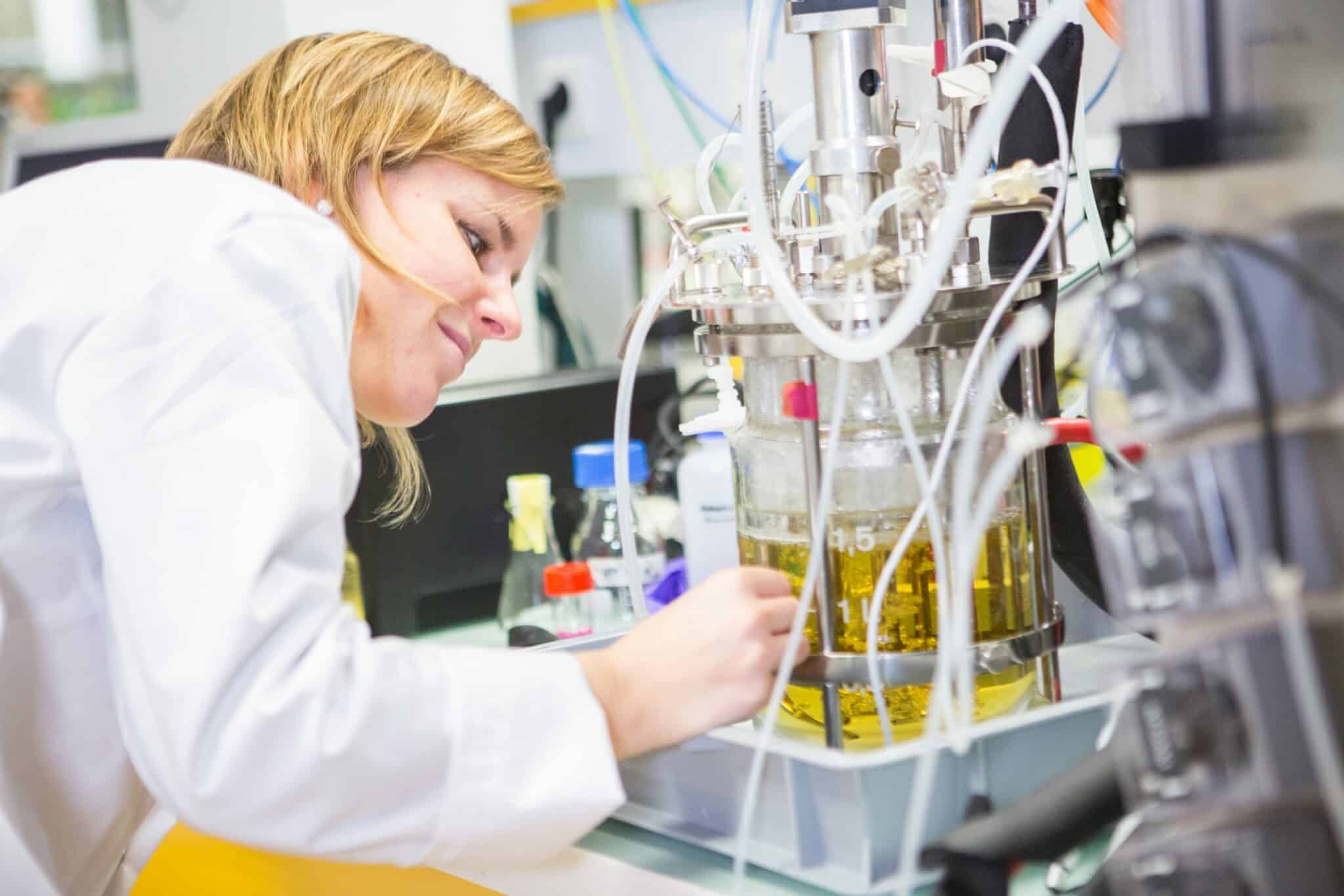
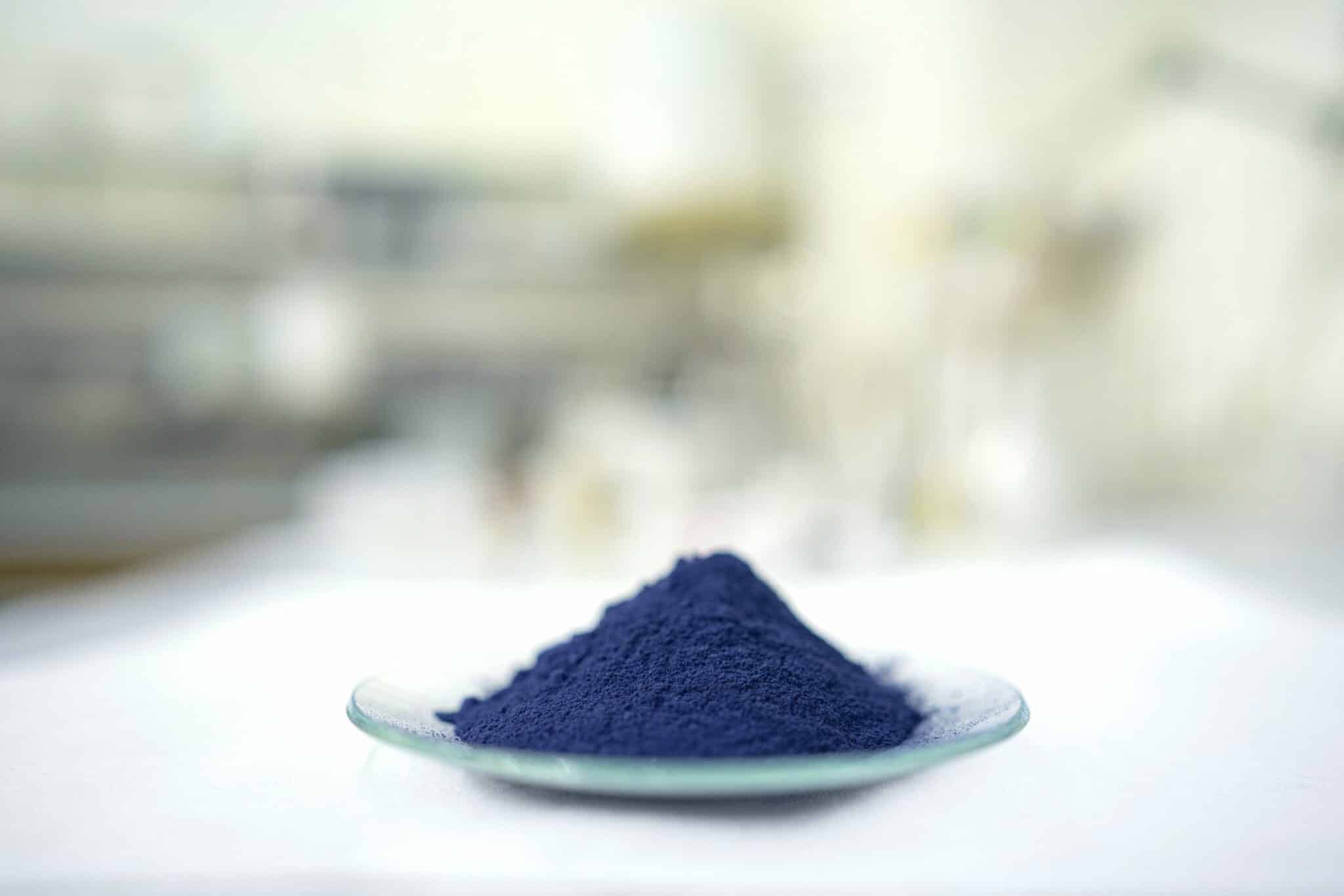
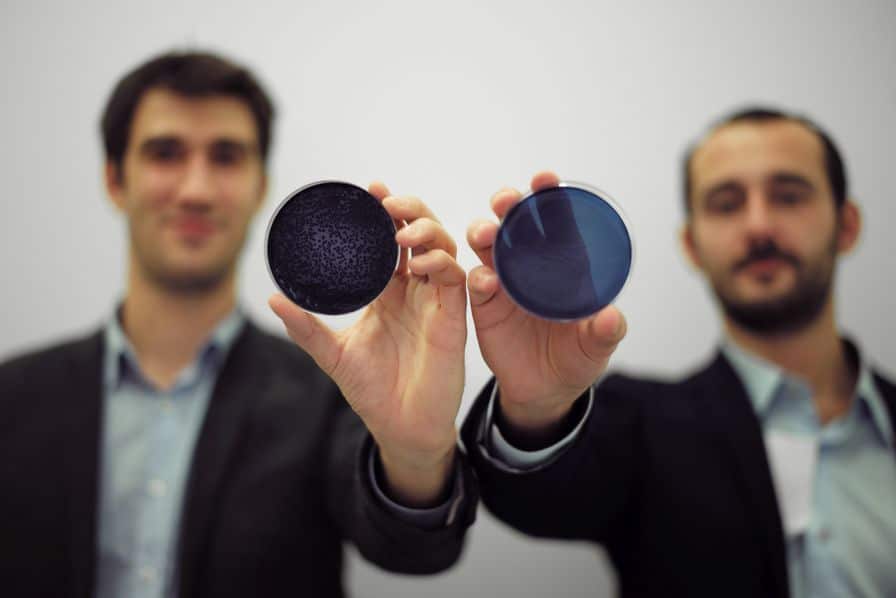
Aiming to tempt industries using textiles, paints, coatings, inks and polymers, towards more environmentally friendly processes is French company PILI. The company produces biobased dyes and pigments via hybrid processes combining fermentation and green chemistry, explains CEO Jeremie Blache:
“These industries consume most of the colors produced in the world and thus represent the main sources of CO2 emissions. This is why we want to change the way we make them and get rid of petroleum by-products and hazardous chemicals that are necessary today.”
Also focusing on color and dyes, but with a product that can also be used for manufacturing the textile fibers themselves is Algalife.
Renana Krebs, Co-Founder and CEO of the Israeli company, explains:
“In China you see the rivers in all different colors from the chemicals and dyes and it gives you a reality check. We saw how algae was transforming the food industry, cosmetics and biofuels and thought why not use it for textiles too?”
Now some 72 of the biggest brands are clamoring to work with Algalife.
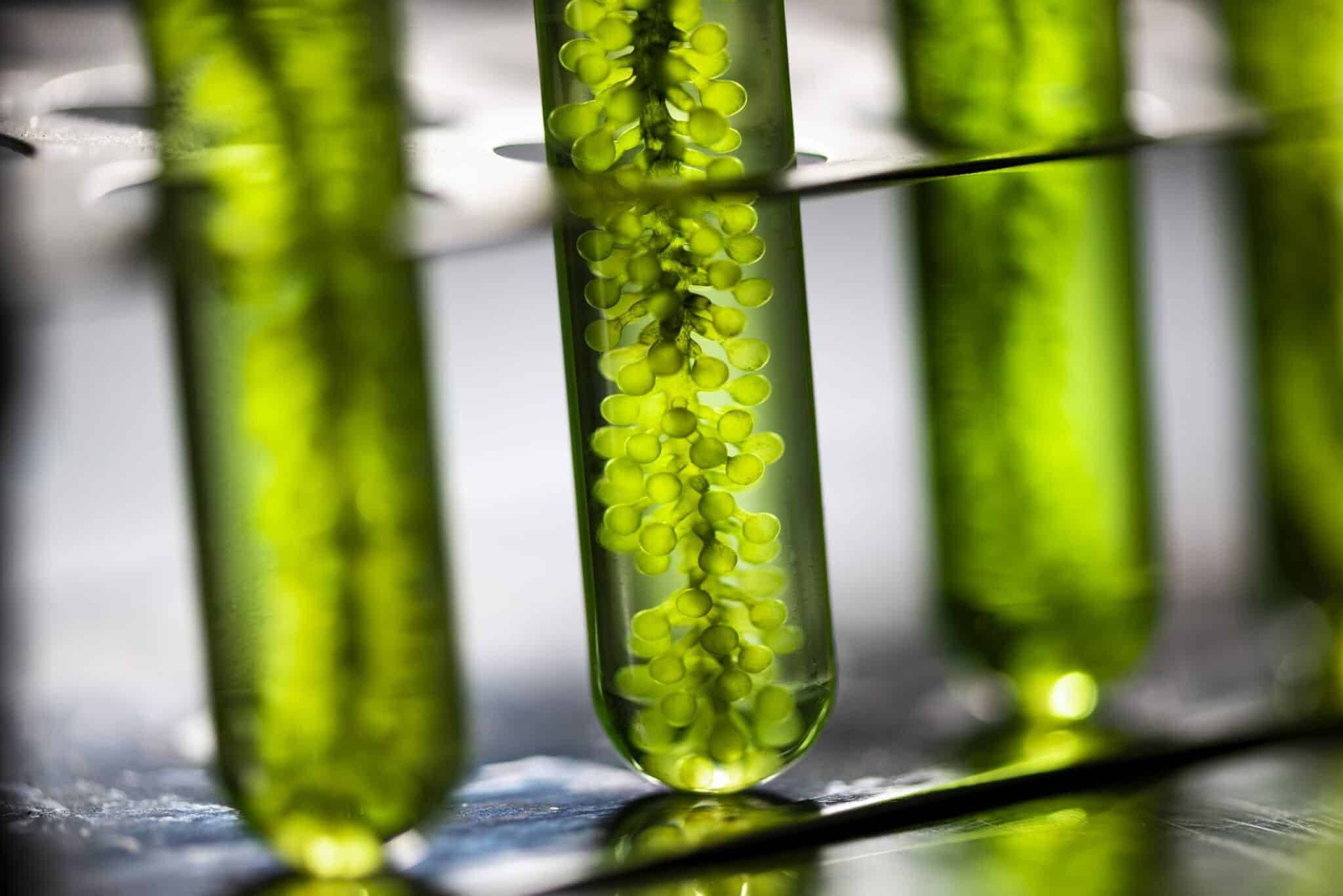
Straddling agricultural, environment and medical biotechnologies with its enzyme-based disruptive technologies, is French company Gene & Green TK.
David Daudé, Chief Executive and Scientific Officer explains:
“Our enzymes are issued from living microorganisms, have been optimized with enzyme engineering techniques and are produced in bioreactors using biotechnological fermentation processes in bacteria. VesuBACT aims at inhibiting bacterial virulence and biofilm formation while not selecting for resistance.”
Conversely to antibiotics and biocides, VesuBACT do not alter the survival of bacteria but target the communication system they use to regulate the virulence process.
“By turning the communication process off, VesuBACT decreases bacterial infections in a sustainable way.”
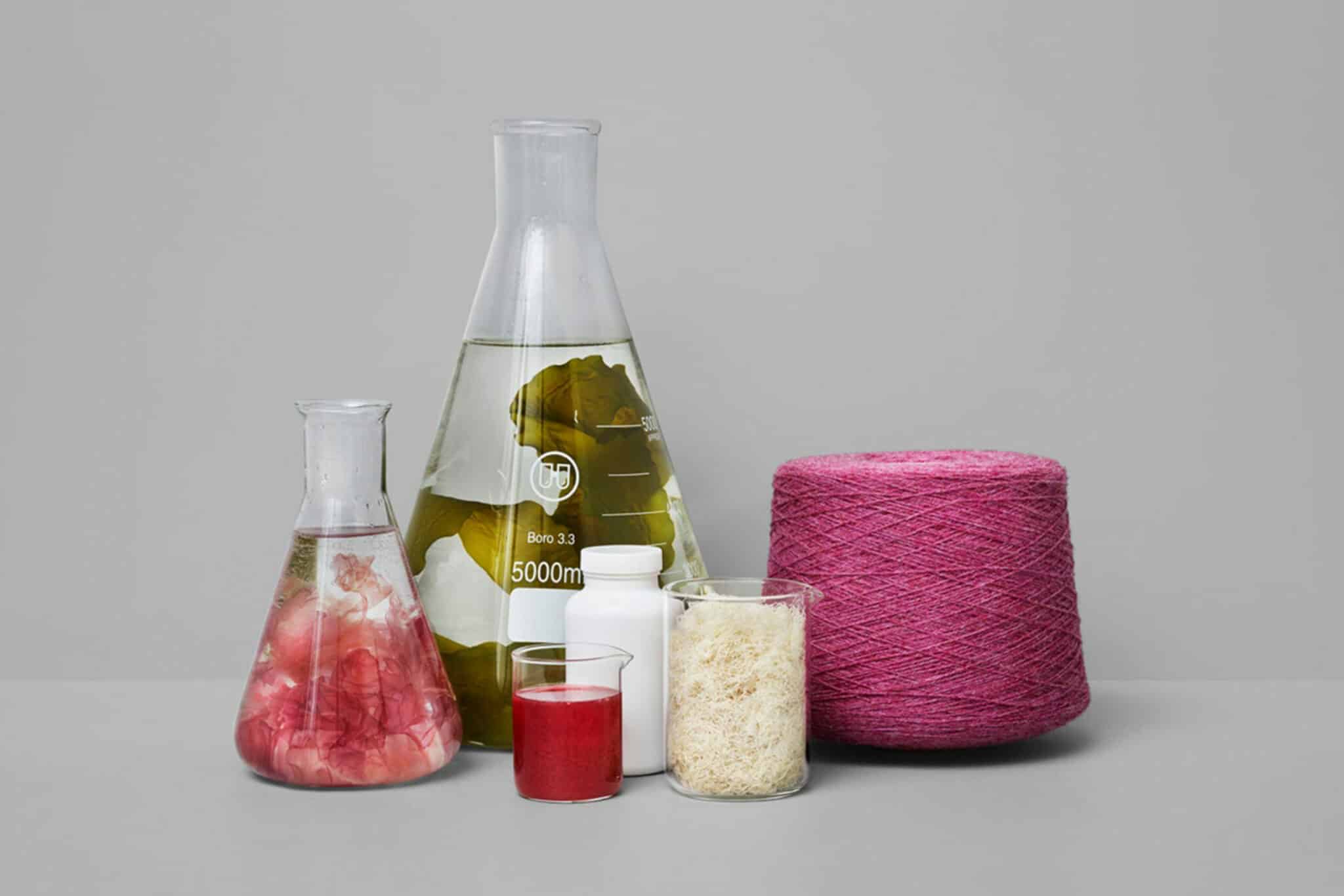
The company also developed VesuTOX, a cocktail of enzymes able to degrade chemical warfare nerve agents (sarin, VX, Novitchoks) very quickly without toxicity nor environmental impact.
“It offers a simple and efficient countermeasure against these harmful compounds that have been recently used for terrorist purposes.”
G&G intends to develop organic alternatives that are more effective than traditional chemistry, as the scope for applying them is highly varied.
“Water processing, mastering biofilms, protecting plants, the human microbiome and animal nutrition and decontamination of neurotoxic substances are the main applications aimed at. “I am convinced that biotech and bio-inspired processes will be central for various fields in the coming years and decades.”
